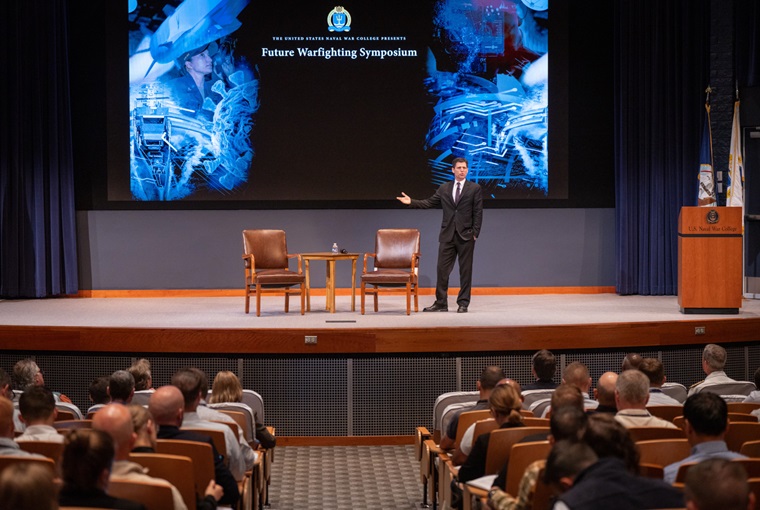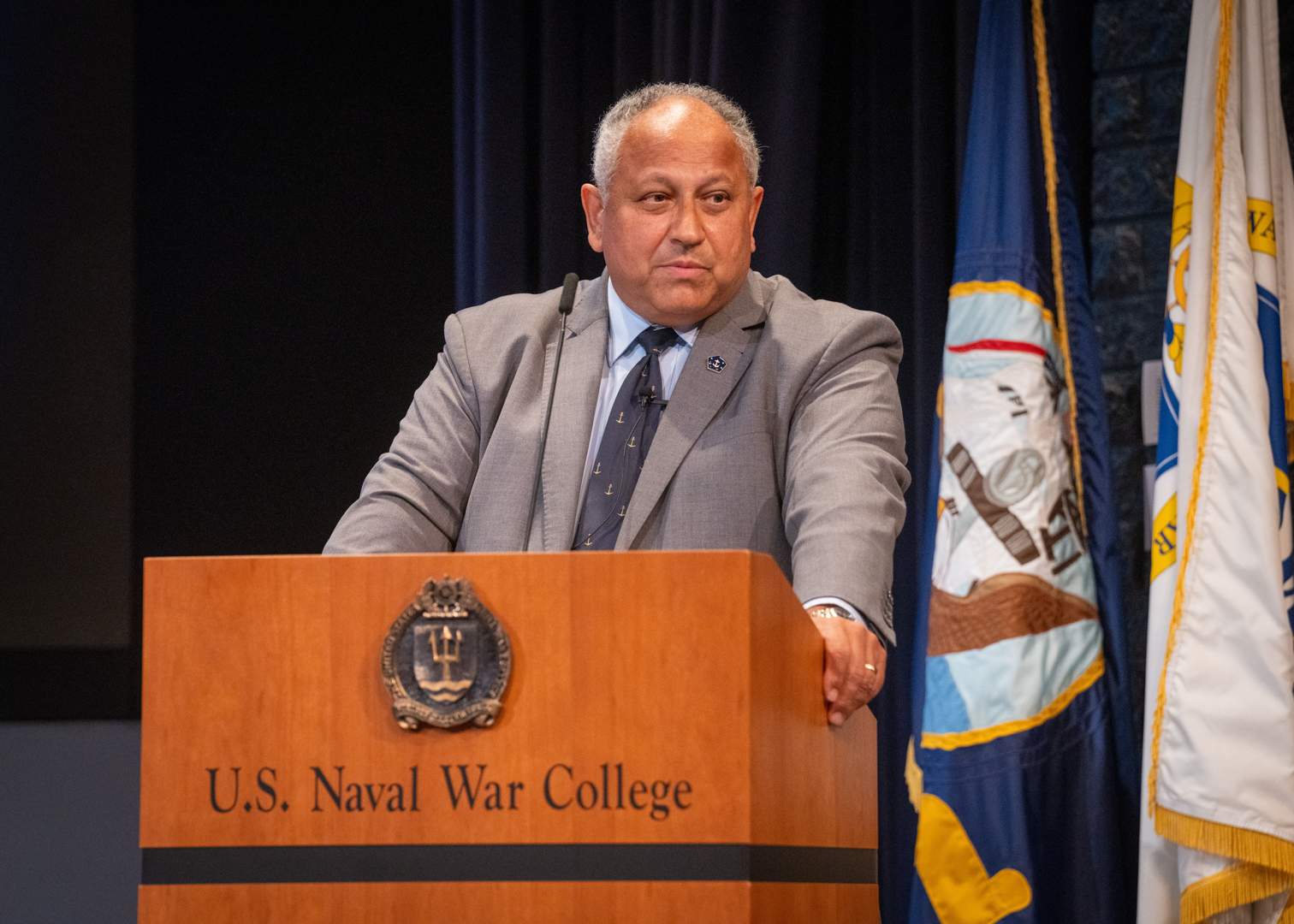Naval War College Hosts Symposium on Innovation and Future of Warfare

Newport, R.I. - The U.S. Naval War College (NWC) held its eighth annual Future Warfighting Symposium (FWS) focused on the future of warfare, onboard Naval Station Newport, Aug. 7 - 8.
Titled “Innovation: The Future of Joint Warfare,” FWS 2024 welcomed 462 in-resident students, including officers from all branches of the U.S. armed forces, U.S. government agencies and more than 70 partner and Allied nations. The symposium also brought together a broad group of subject matter experts on emerging and disruptive technologies like artificial intelligence, cyber warfare and space operations.
“My charge to you this day and in future events - participate. Fully invest in the program,” Rear Adm. Pete Garvin, president of NWC, told students in his opening remarks. “This race we're about to run is not for you individually, but for the future of the international rules-based order we’ve enjoyed since World War II.”
Students participated in panel discussions supported by 20 speakers, covering topics such as conflict and competition in cyberspace, competition in the space domain, deterrence in the 21st century, artificial intelligence and data analytics, and deterrence in the 21st century. Topics were chosen after being identified by the Chairman of the Joint Chiefs of Staff (CJCS) as special areas of emphasis for professional military education.
“We support the National Defense Strategy and CJCS Officer Professional Military Education Program by challenging NWC students to think innovatively about new capabilities and domains that are changing the character of war,” said Garvin.
Speakers and panelists represented the Office of the Chief of Naval Operations (OPNAV), Carnegie Endowment for International Peace (CEIP), Northeastern University (NU), The Brookings Institution, Tufts University, Massachusetts institute of Technology (MIT), and additional U.S. government, military, academic and industry organizations.
Discussions during the symposium will continue throughout the academic year via NWC’s new Perspectives on Modern War (PMW) course. PMW combines theoretical analysis of war with the development of practical solutions to mitigate current and future global security challenges.
FWS 2024 began with keynote remarks by Max Brooks, author of “World War Z: An Oral History of the Zombie War,” who has participated in various think tanks and speaking engagements at military institutions, sharing his knowledge on crisis management and emphasizing adaptability, resilience and innovative thinking in preparing for future conflicts.
Brooks encouraged participants to foster a culture of innovation and flexibility when anticipating and preparing for a broad spectrum of potential threats.
“Have the courage to champion great ideas, listen to those who have good, creative ideas, trust your instincts, and support your peers in creative pursuits,” Brooks stated. “It is powerful to make people understand what is possible.”
Brooks also offered that building partnerships is an overwhelming asymmetric force.
“An American-led world is a partnership. We are here as partners, for we are all working together for common goals,” he added. “If we double down on our alliances and collaborate with one another, these alliances can hold the line.”
Panelists also encouraged participants to expand their understanding of new and emerging environments where competition and conflict are taking place, including the cyber and space domains.
“Cyberspace is a warfighting domain,” said Rear Adm. Heidi Berg, assistant deputy chief of naval operations for operations, plans, and strategy at the Office of the Chief of Naval Operations (OPNAV). “You must understand cyberspace and space if you want to detect threats and employ weapons for command and control over the horizon.”

“The Naval War College is a national treasure. There is no institution better suited to build the intellectual foundation of maritime statecraft. It is in your DNA. Luce, Mahan, Sims—icons of this institution—changed the world with revolutionary works on sea power, ” said Secretary Del Toro. “They recognized then, as now, that for the United States, maritime strategy is grand strategy. Extraordinary thought leadership here in Newport made the nation a global power at the dawn of the 20th Century.”
Initiated in 2017 by Chief of Naval Operations (CNO) mandate, FWS gives NWC the opportunity to further its training and education on new emerging forms of war. The symposium supports Navy and Department of Defense priorities by challenging leaders to think innovatively about capabilities and threats in space; the global information grid and emerging technologies such as nanotechnologies, biological agents, robotics and artificial intelligence.
Established in 1884, NWC is the oldest institution of its kind in the world. The college delivers excellence in education, research, and outreach, informing today’s decision makers, educating tomorrow’s leaders, and engaging partners and Allies on all matters of naval power in order to preserve the peace, respond in crisis, and win decisively in war.
